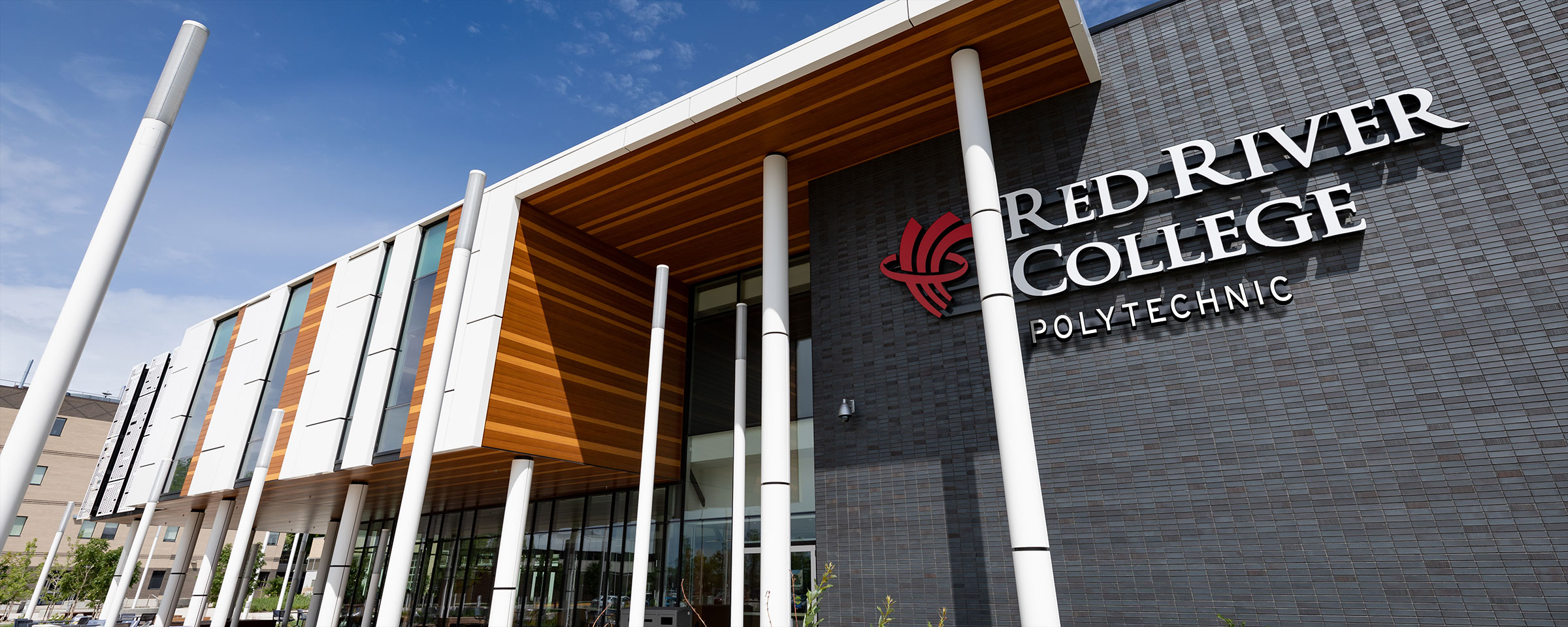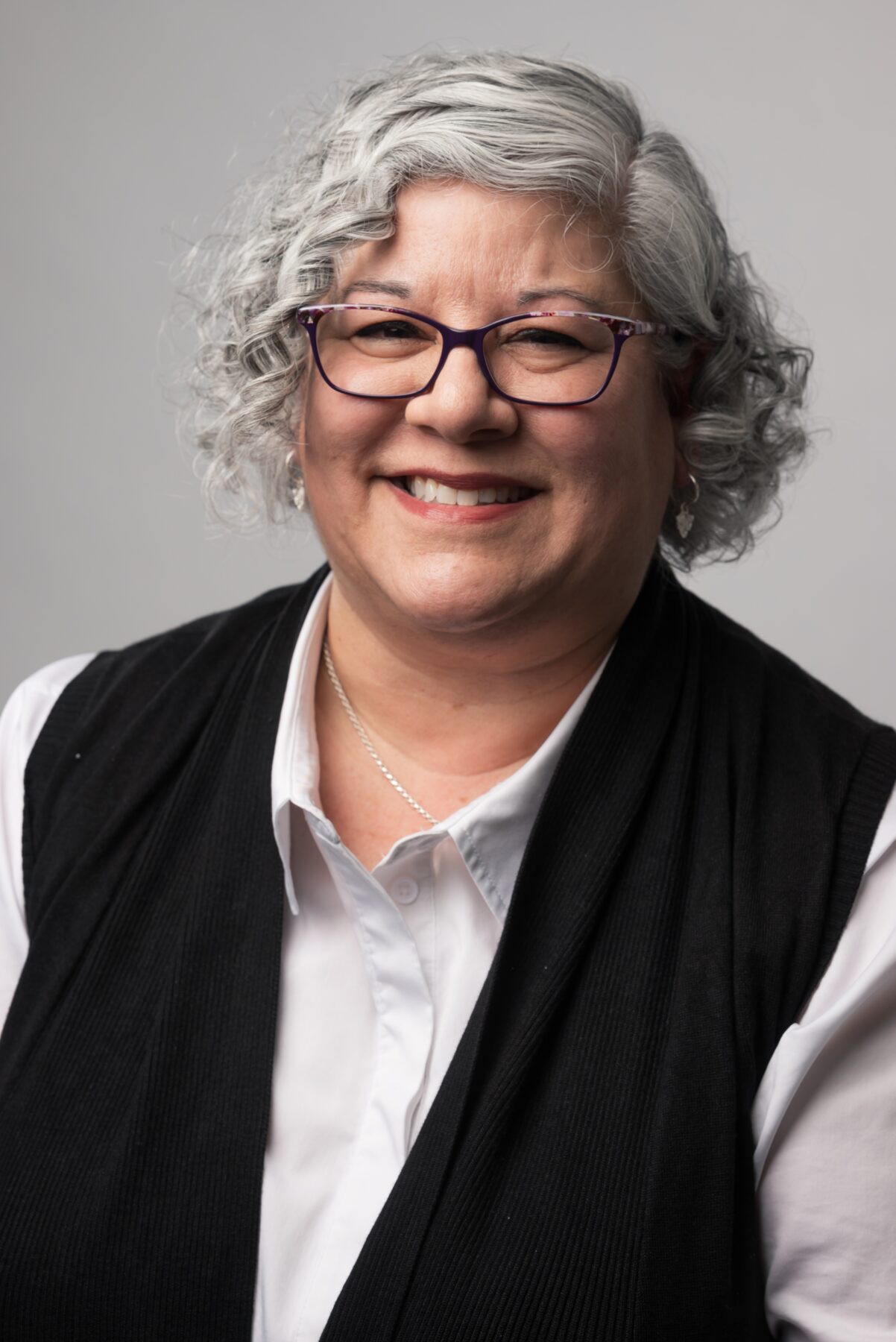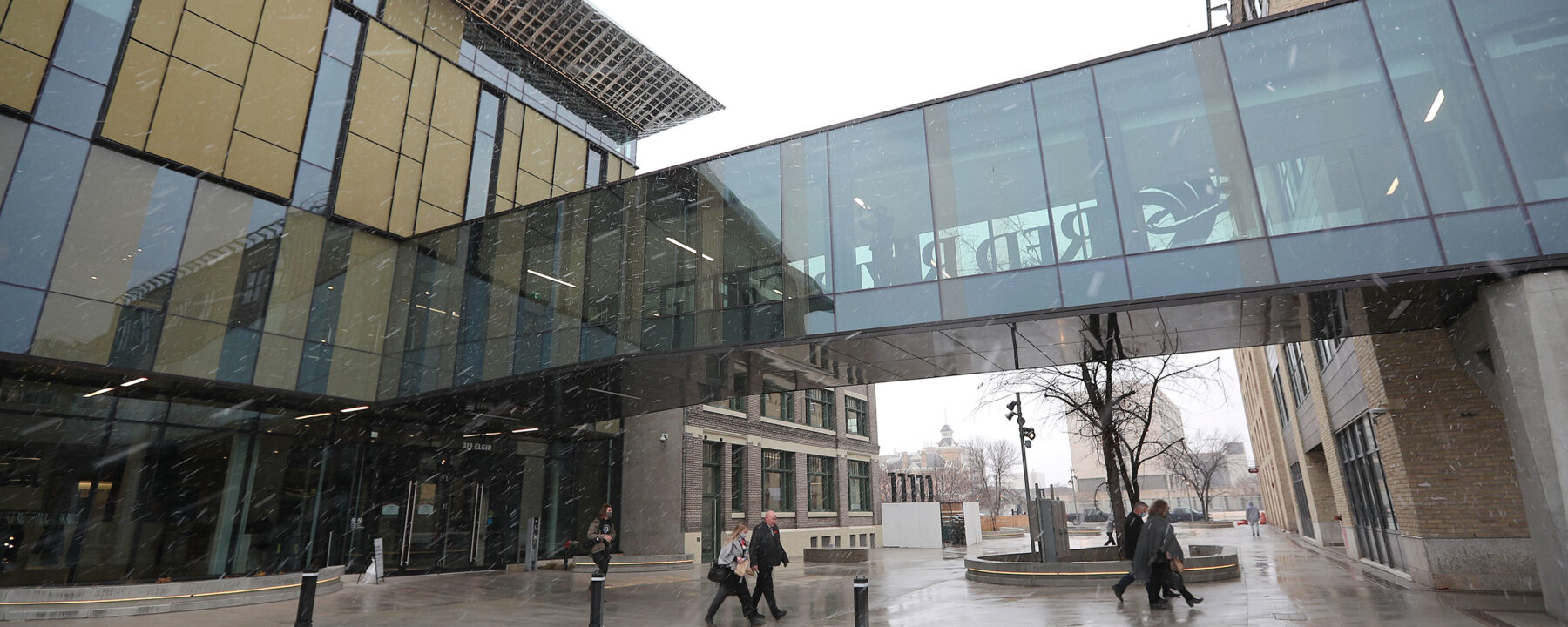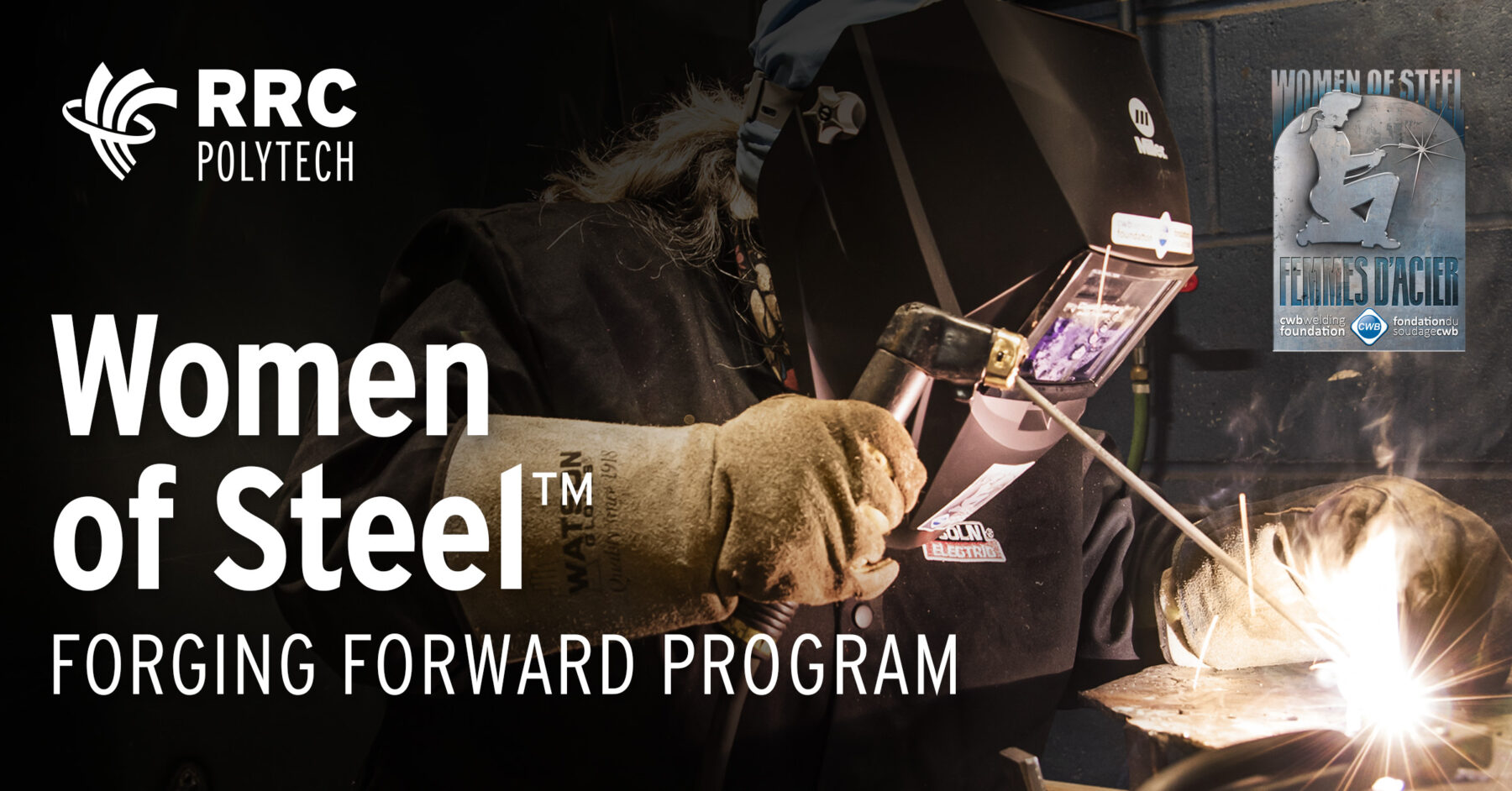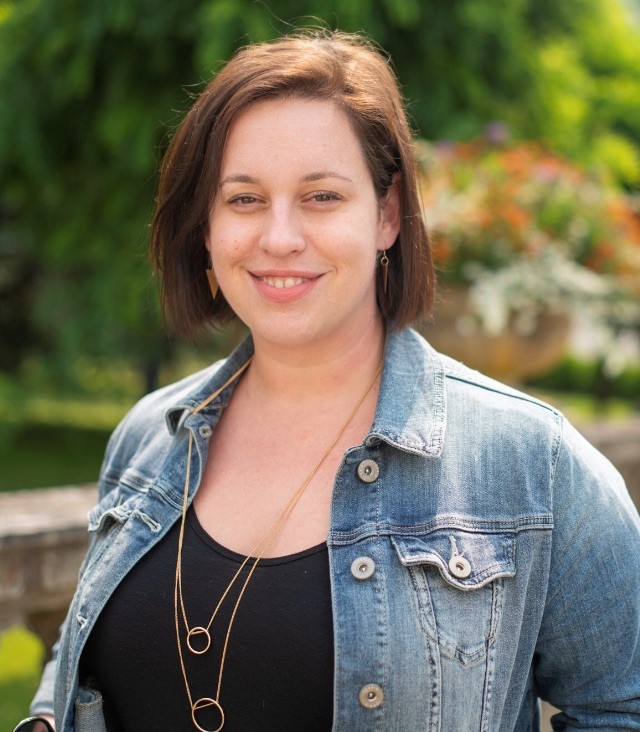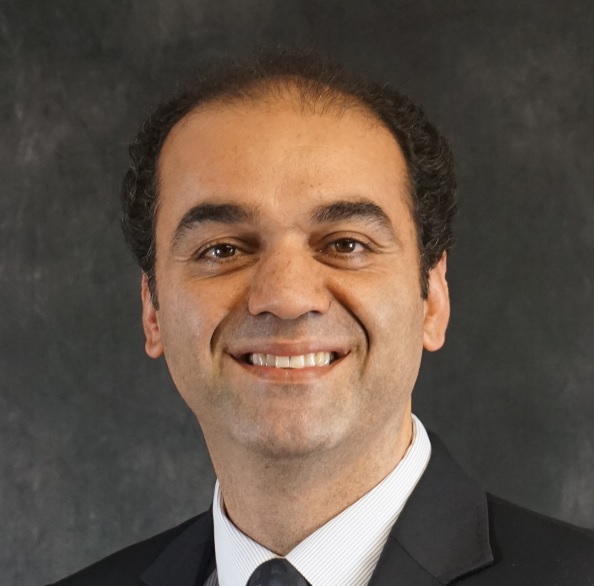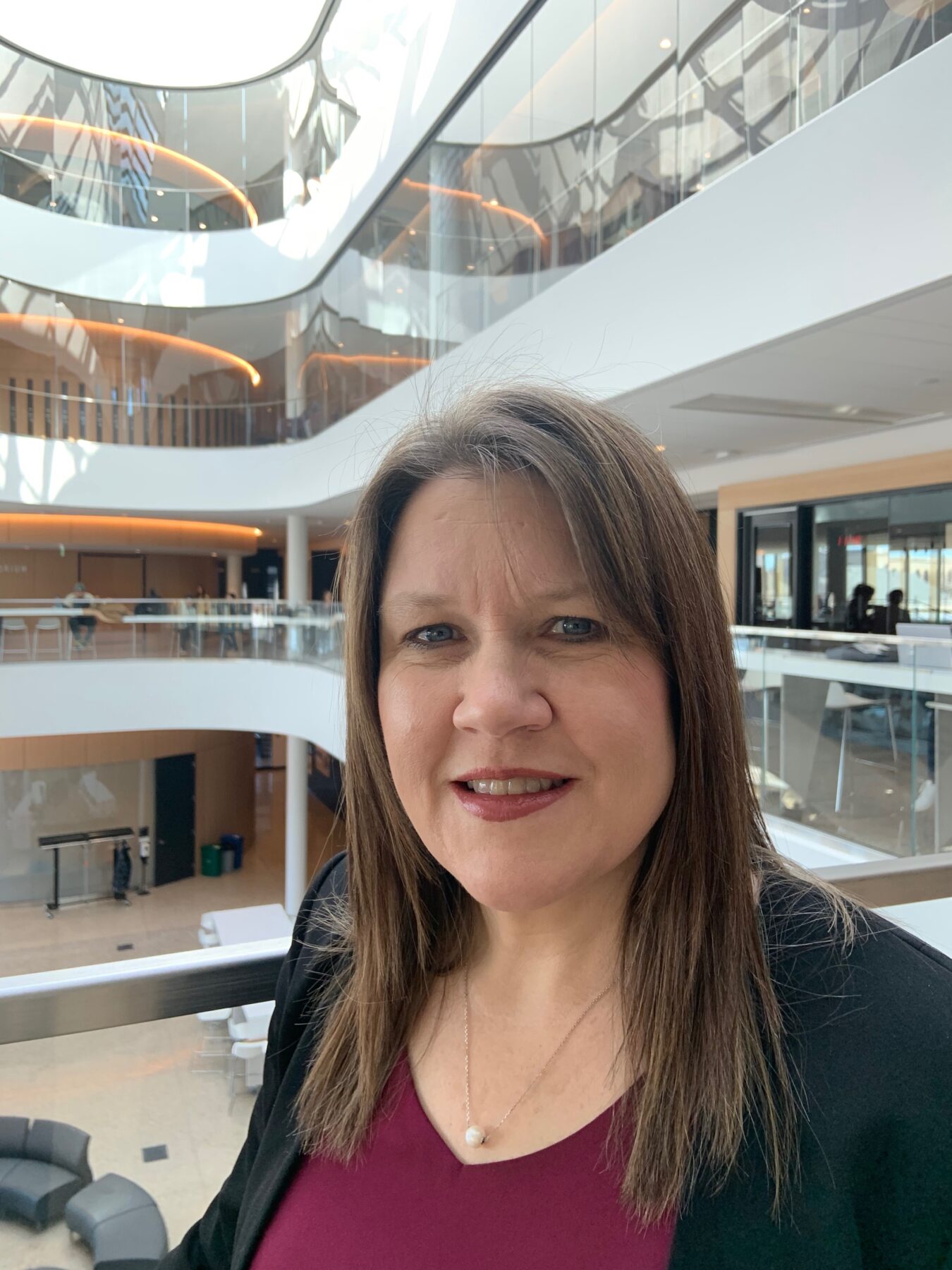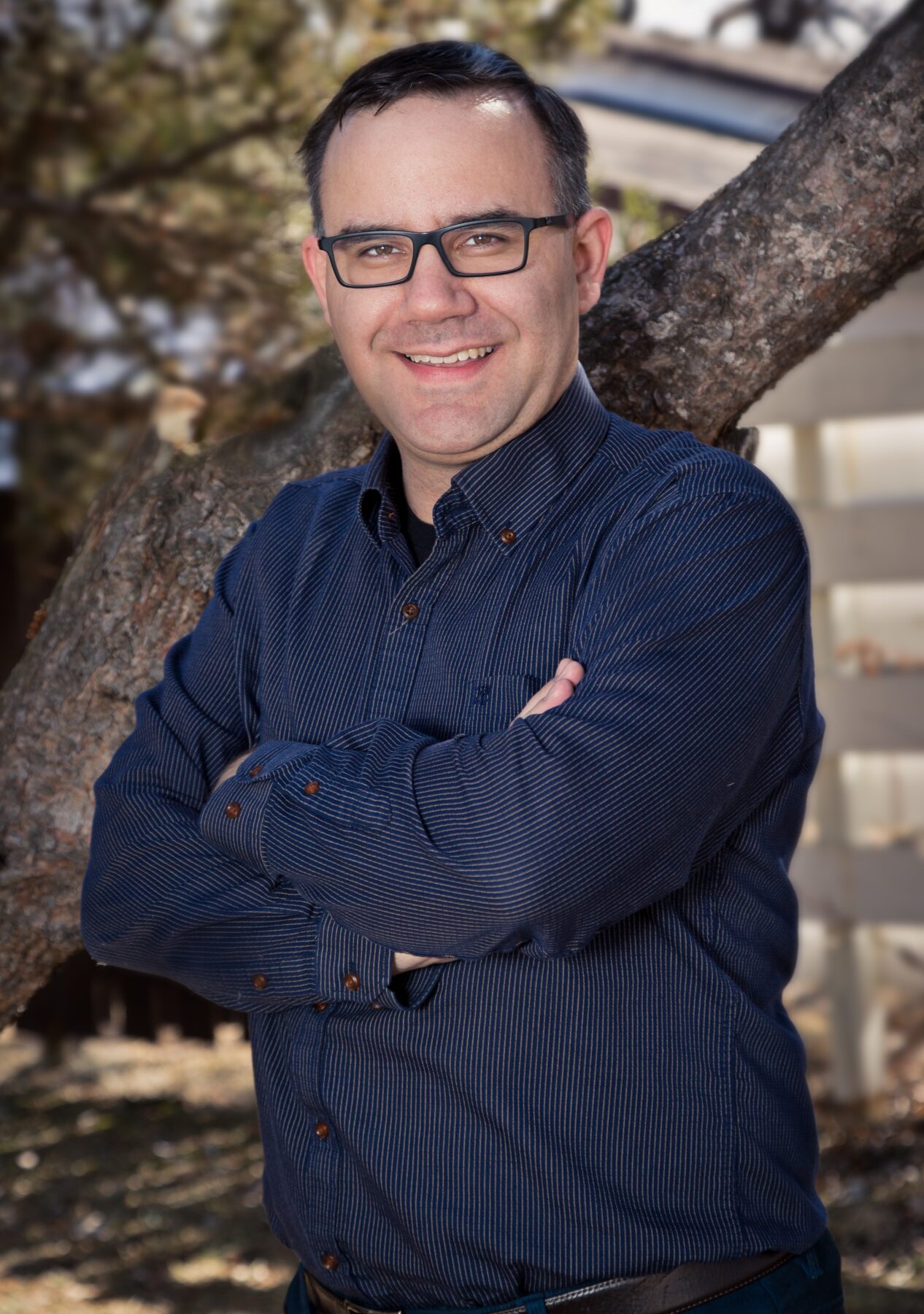Welcoming RRC Polytech’s new Chairs, School of Skilled Trades & Technologies
RRC Polytech is pleased to welcome the new Chairs for the School of Skilled Trades & Technologies. Please join us in welcoming the new Chairs:
- Dustin Blackwell, Chair, Heavy Duty, Marine and Powersports
- Michael Blatz, Chair, Collision and Modified Apprenticeship Programs
- Shylyte Bloodworth, Chair, Manufacturing
- Aaron Brown, Chair, Mechanical Engineering Technology
- Lee Demers, Chair, Electrical Trades – Common Core and Certificate
- Jayne Geisel, Chair, Civil Engineering Technology – Building
- Nigel Louis, Chair, Aircraft Maintenance
- Rob Masi, Chair, Mechanical Trades
- Ryan Peters, Chair, Construction and Power Electrical
- Patrick Savard, Chair, Piping Trades
- Scott Savoy, Chair, Construction Trades
- James Voth, Chair, Automotive Trades

Dustin began his career at RRC Polytech in 2011 as an instructor in the Marine and Powersports program, following 10 years working in the Powersports industry. For the last three years, Dustin has been an Academic Coordinator for Automotive, Heavy Duty, and Marine and Powersports Certificate and Diploma programs.
Dustin is an RRC Polytech alumni, a Red Seal Motorcycle Technician, and has almost completed his Bachelor of Arts in Adult Education.
Leading five programs through Course Based Registration, Dustin has built strong relationships across the College and has a deep understanding of College systems and processes. Dustin strives to foster an inclusive environment, where all employees and students feel valued, respected, and supported.
Outside of work, Dustin enjoys family time with his wife and two daughters, snowmobiling, and BBQ.

Michael joined RRC Polytech in 2019, as an instructor in the Automotive Technician programs. He then moved into a Coordinator role in the Transportation and Heavy Apprenticeship Trades.
Michael started as an automotive Red Seal technician, spending 12 years working at a General Motors Dealership where he had plenty of apprentices and students to mentor.
Michael is a four-time RRC Polytech alumni, graduating from the Automotive Technician Certificate, Automotive Technician Diploma, GM ASEP apprenticeship program, and TFL. He is a lifelong learner that is committed to mentorship while fostering an inclusive and collaborative approach, always looking for new ideas.
Outside of work Michael enjoys spending time with his wife and three kids. Camping is a summer favourite; fishing and golfing when time allows. Michael also volunteers to coach kids’ soccer and is a Scouts leader for 60th scout group.

Pipe welder, robotics programmer, and weld quality technician are a few of the roles that Shylyte Bloodworth has held in the welding industry. After graduating from the Technical Vocational Teacher Education program and completing a Certificate of Adult Education, Shylyte achieved a Bachelor of Education (University of Winnipeg, 2018).
Shylyte started her RRC Polytech career in 2011 as an instructor, and later completed the Envision Leadership Development program which led to an Academic Coordinator role. She eventually became Program Manager for the Electrical, Mechanical and Manufacturing department.
As a Red Seal Welder, Shylyte is passionate about sharing how training in the trades can provide many fantastic career opportunities. Outside of work, Shylyte was the inaugural Chair for the Build Together, Women of the Building Trades – Manitoba Chapter, where she is now the Recording Secretary. She is also the past Chair of the Canadian Welding Bureau Association Winnipeg Chapter.
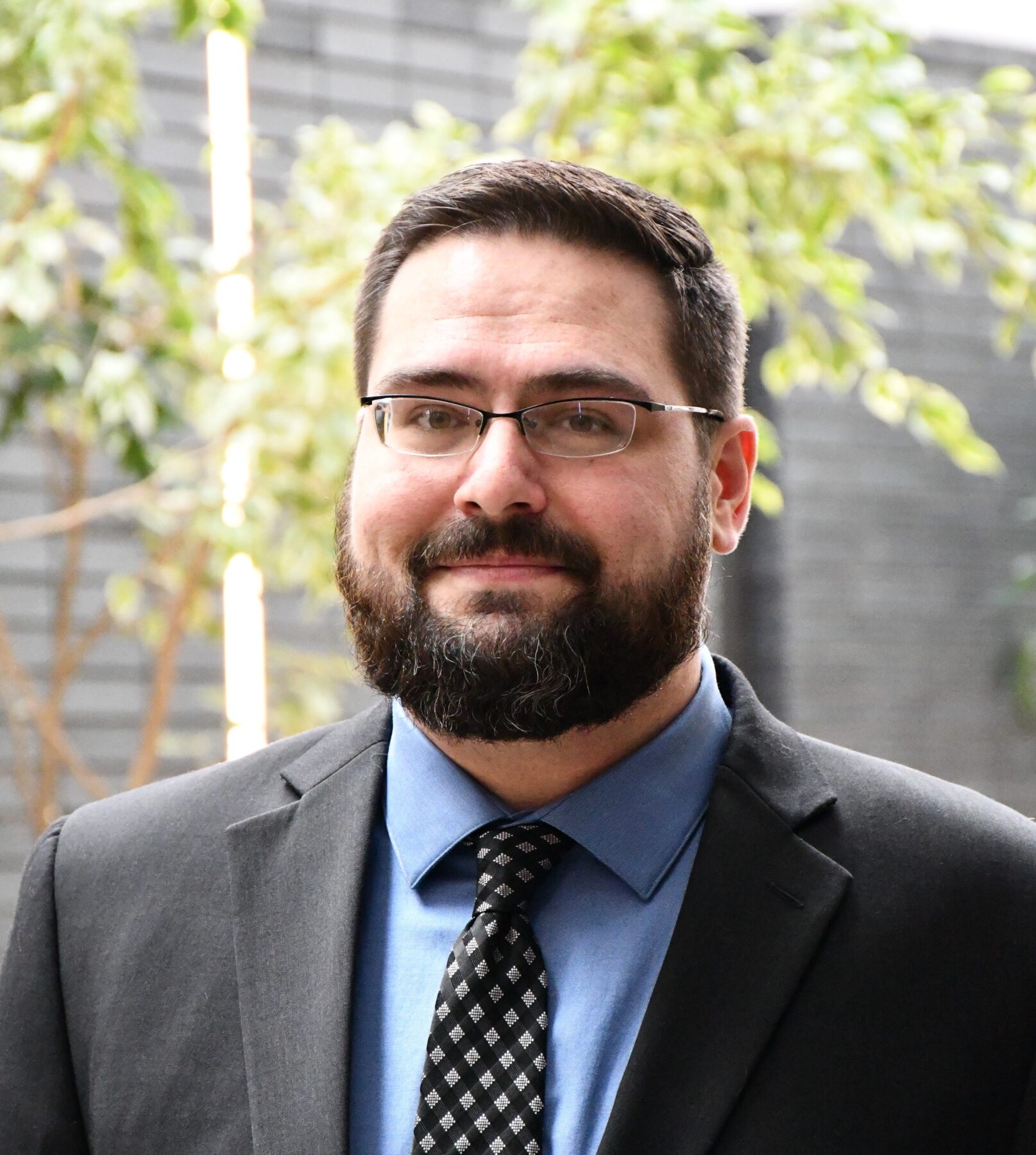
Aaron J. Brown (he/him/his) has worked at RRC Polytech for five years as an Instructor in the Mechanical Engineering Technology program. He also held the roles of Academic Coordinator for the MET, PET, and ManCAD programs and Program Liaison for the Conestoga Welding Pre-Apprenticeship program.
Prior to joining RRC Polytech, Aaron spent a decade in the aerospace manufacturing industry with progressive roles as manufacturing engineer, production planner, technical team leader, and industrialization manager.
Aaron is a Certified Engineering Technologist in the Province of Manitoba. He holds a Diploma in Mechanical Engineering Technology and a Certificate in Project Management from RRC Polytech as well as a Post-Baccalaureate Certificate in Aerospace Program Management from the University of Manitoba.
Outside of work, Aaron is a dedicated lifelong learner, taking evening courses on various topics. He especially enjoys cooking and is a proud graduate of RRC Polytech’s Culinary Arts Diploma program.
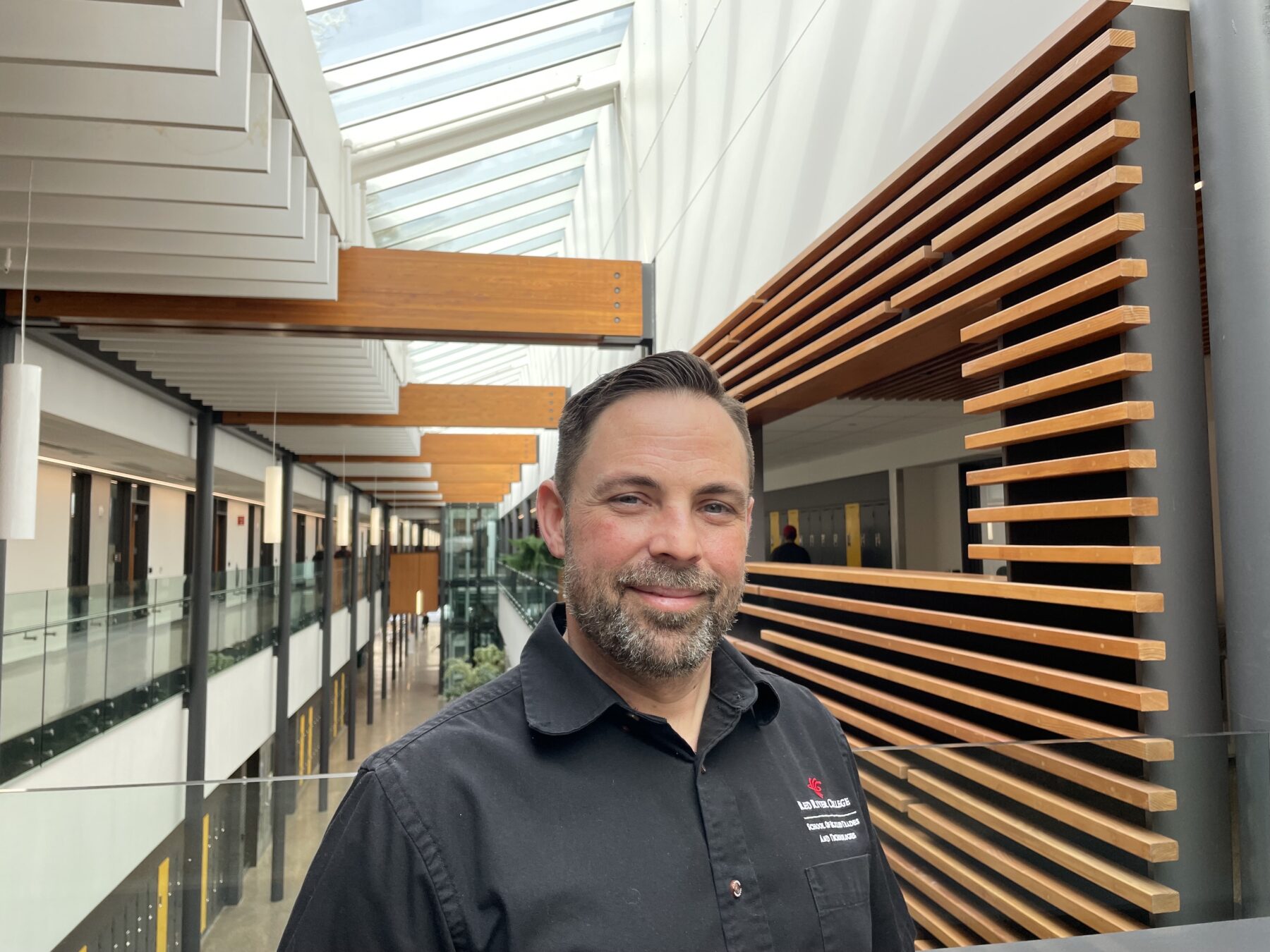
Did you know the human heart isn’t the only thing that works with both plumbing and electrical? So does RRC Polytech’s new Chair of the electrical department, Lee Demers.
As a Red Seal plumber and gasfitter with nearly a decade of experience in various roles at RRC Polytech, Lee has put his skills to work as a Plumbing Instructor, Coordinator of the Piping Trades and Program Manager for the Industry Transportation and Skilled Trades portfolio in Continuing Education.
Lee has completed his CAE, ENVISION and ENABLE leadership programs and as a lifelong learner, he is currently completing his Project Management certificate.
In his spare time, Lee enjoys spending time with his daughter, playing guitar in his band, and staying active mountain biking and playing hockey.

Jayne Geisel first came to work at RRC Polytech in 2007, teaching in the Greenspace Management program. In 2018 she became the Academic Coordinator in Civil Engineering Technology and for the past year she has been Project Lead for Academic Transformation with the Civil Engineering Technology department. Jayne has been an active and engaged member of the College community through her involvement in the RRC Faculty Association, MGEU and as Employee Member on the RRC Polytech Board of Governors.
Jayne holds a Bachelor of Arts from the University of Manitoba, a Horticulture Diploma from Olds College, and is currently completing a Master of Education from the Werklund School of Education at the University of Calgary, with a focus on academic leadership and EDI.
Outside of work, Jayne enjoys many fibre arts, is an avid reader, and loves to spend time with her family and pets.

Nigel Louis is in his 10th year at RRC Polytech, all with Stevenson Campus – Aviation and Aerospace as the quality assurance manager.
Prior to working at RRC Polytech, Nigel’s career included over 25 years of aviation experience in engineering, education and maintenance.
Nigel graduated with an Avionics Maintenance Diploma and is also an RRC Polytech alumni with an Information Technology Diploma for software development.
When not working, you’ll find Nigel spending time with his family, enjoying the outdoors and working on his classic car.
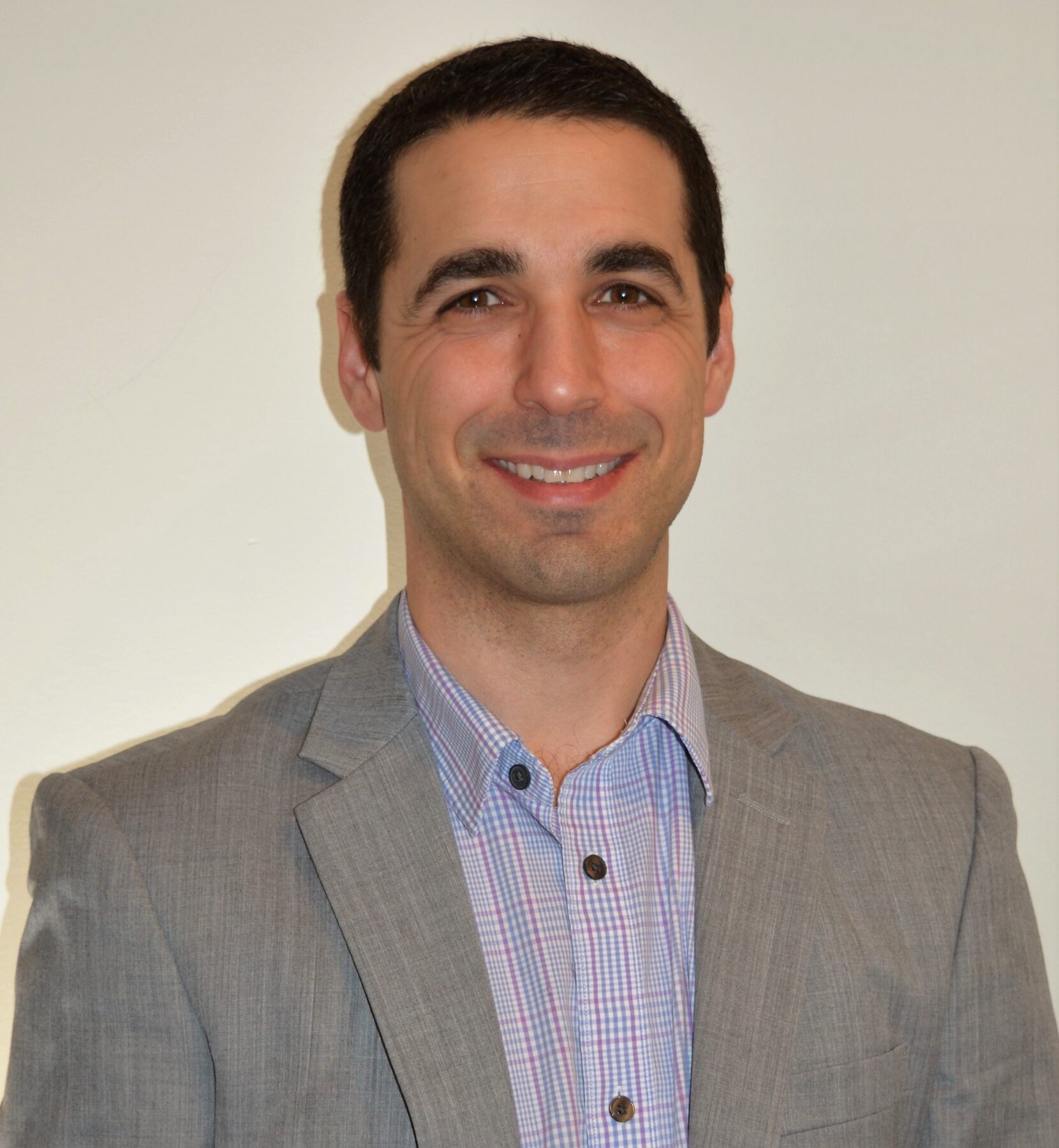
Rob Masi (he/him) is a Red Seal carpenter who worked in both the commercial and residential construction trades before returning to RRC Polytech to teach in the carpentry department in 2014. Affirming his commitment to lifelong learning, Rob has obtained his Certificate in Adult Education and recently completed the Energy Advisor Course.
In his position as coordinator, Rob drew extensively on his strong relationships with industry to bring in corporate sponsorships to better develop the carpentry and cabinetry programs and enrich student experiences. Rob loves working with other departments to complete projects that give back to the greater College community. He is always looking to maximize program success through partnership, innovation, and collaboration.
Rob enjoys spending time with his wife and their four children. His hobbies include farming, coaching and playing soccer and volunteering in his community.

Ryan Peters began working at RRC Polytech in 2017, and has worked as an Educational Assistant in Carpentry, Refrigeration, and HVAC, and a fulltime instructor in the Electrical Department.
Ryan began his career in the electrical field 19 years ago as a Red Seal Construction Electrician. After completing his Red Seal, he returned to RRC Polytech and completed the Technical Vocational Teaching Certificate program.
He has also worked on various projects around the College, including the Help Desk Project, Harmonization of the Electrical curriculum, and LEARN implementation and online development. Ryan is also the Manitoba representative on the National Technical Committee for Skills Canada (Electrical) and spearheads the provincial competition held here at RRC Polytech.
Outside of work, Ryan can usually be found on the golf course or at the rink, spending time with his family.

Patrick Savard has worked in various roles in RRC Polytech’s Piping Trades department since 2013. He began as an instructor in the plumbing apprenticeship training and the plumbing certificate program and became coordinator of Piping Trades in 2019. In 2020, he added the Mechanical Trades to his coordinator role.
Patrick holds a Red Seal Journeyperson Plumber & Gasfitter certificate from SAIT. Prior to moving to Winnipeg, he owned and operated a plumbing and heating company in Calgary. Patrick has since continued his education at RRC Polytech, having completed his Certificate in Adult Education, the Energy Advisor training, and several other construction safety courses. Patrick is currently the chair for Skills Manitoba and Skills Canada for the Plumbing trade and looks forward to showcasing his trade at the competition in May.
In his spare time, Patrick enjoys all of life’s adventures with his beautiful wife, three incredible children, and their two beastly dogs.

Scott started his career in the construction sector in 1987 and attained his Red Seal Endorsement for Carpentry in 1993. He has worked as a carpenter, estimator, project manager and owner, and has refined his leadership skills as a Project Coordinator and Project Manager after transitioning to the residential and commercial millwork/cabinetry industry.
Scott joined RRC Polytech as a Carpentry Instructor in 2006. He has led a variety of projects and is most proud of the development and implementation of the College’s learning management software for the Carpentry program. Scott became Program Manager for Construction Trades in 2020. He has been honoured with two Bravo Awards: the Award for Teaching Excellence in 2017, and the Award for Leadership at All Levels in 2022.
Scott currently sits on the Board for Skills Manitoba as an Educational Representative. Scott enjoys spending time with family and friends at his cottage. He is also an active member of the RRC Polytech Staff Curling League, and enjoys being creative in his home shop, wood turning, chainsaw carving, or whatever grabs his attention.

Jim joined the College in 1995 as an Instructor in the Automotive Technician program. Since then, he has worked in many of the programs within the Transportation Trades, including nine years providing manufacturer upgrade training to dealership technicians. He also spent two years providing core skills training for the manufacturing industry in Winnipeg. In 2001, Jim was recognized with the Service Excellence Award from RRC Polytech for hosting the North American Council of Automotive Teachers Conference.
Jim holds a Certificate in Adult Education from Red River College Polytechnic, a Bachelor of Science Degree from Ferris State University, and a Master’s in Education (Adult and Post-Secondary) from University of Manitoba.
Outside of work, Jim enjoys cycling, fishing, and travelling.
